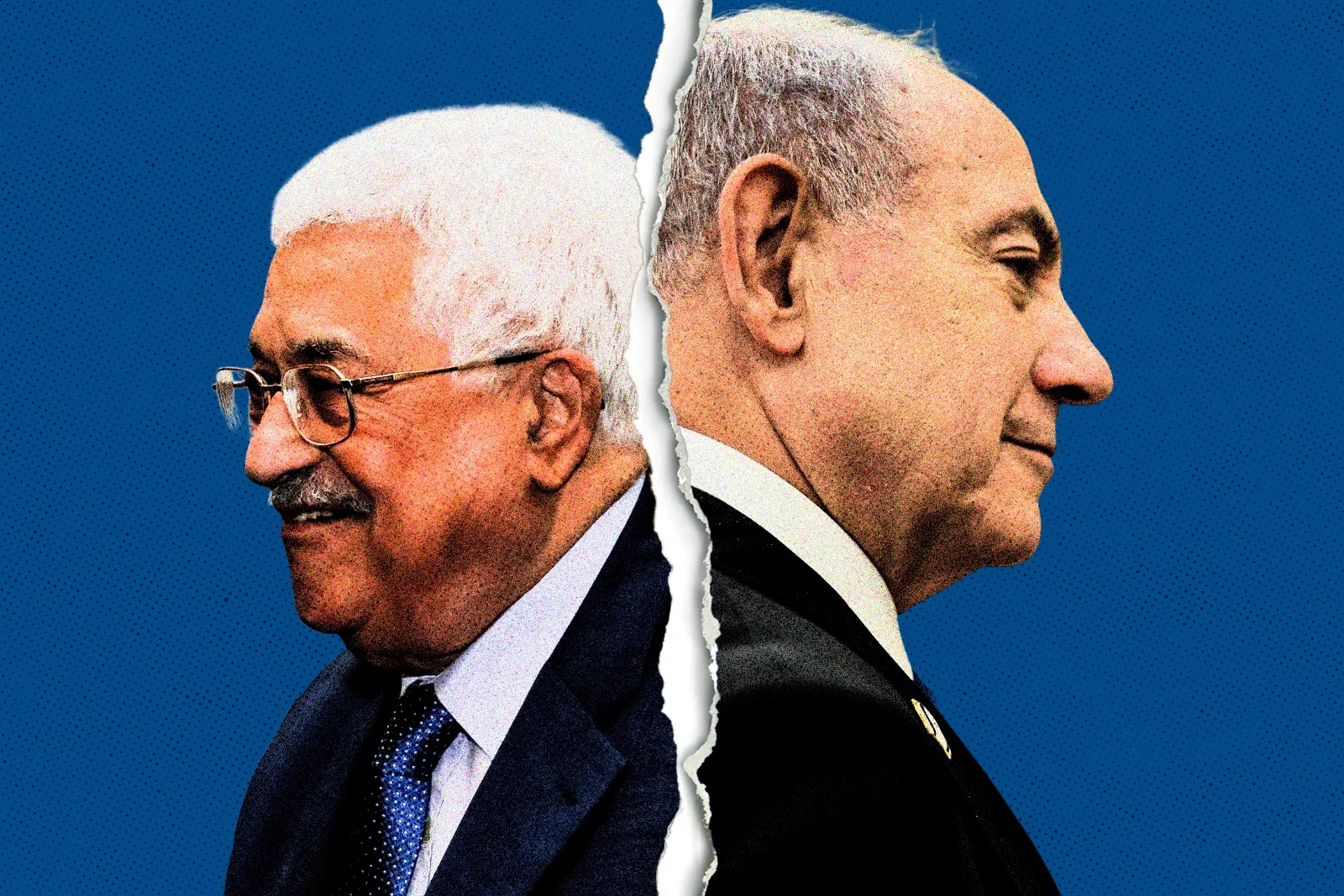
How Abbas and Netanyahu Skirt Accountability
Mahmoud Abbas and Benjamin Netanyahu are, in different ways, both territorial and cultural standard-bearers. But are they also criminal defendants? Are there live cases against each man—and where do they stand domestically and internationally?
Mahmoud Abbas
Internationally, there is no International Criminal Court (ICC) warrant or indictment naming Abbas. He has no defendant page on the ICC website. Some NGOs have submitted communications urging the Court to investigate him, but those filings are advocacy documents: they invite prosecutors to look; they do not themselves create charges or judicial warrants. Elsewhere, Abbas’s remark about “50 Holocausts” prompted Berlin police to open an incitement probe. Prosecutors later concluded the statement bore elements of incitement, yet closed the matter due to immunity; no charges were filed.
In the United States, victims have sued the Palestinian Authority (PA) and the Palestine Liberation Organization (PLO) under the Antiterrorism Act. In June, the U.S. Supreme Court unanimously upheld the constitutionality of the Promoting Security and Justice for Victims of Terrorism Act’s jurisdictional “hook” in Fuld v. Palestine Liberation Organization, reviving certain ATA suits against the PA/PLO when statutory predicates are met.
Abbas, however, was not held personally liable in that case. Inside the PA, prosecutions over the 2021 killing of activist Nizar Banat targeted security officers rather than civilian leadership. Rights groups have faulted the proceedings as delayed, narrow, and routed through military courts—insufficient, in their view, for genuine civilian accountability.
Benjamin Netanyahu
Internationally, the ICC’s Pre-Trial Chamber I issued arrest warrants for Netanyahu and then–Defense Minister Yoav Gallant on November 21, 2024, rejecting Israel’s jurisdictional challenge and leaving the warrants active. The alleged crimes include war crimes—such as starvation as a method of warfare and intentionally directing attacks against civilians—and crimes against humanity, including murder, persecution, and other inhumane acts under Articles 7 and 8 of the Rome Statute.
As ever at the ICC, the threshold is “reasonable grounds to believe,” which is enough for warrants but far from a conviction. States Parties to the Rome Statute are obligated to act on such warrants, though compliance often bends to politics. From May through July, the docket reflected continued filings over Israel’s challenges; meanwhile, Slovenia barred Netanyahu’s entry, citing the warrant. When Netanyahu traveled to the United Nations, his flight path reportedly skirted the airspace of ICC member states. France cleared an overflight, but Israel still chose a detour, underscoring both risk management and optics.
Domestically, Netanyahu remains on trial in the Jerusalem District Court, a proceeding that began in May 2020 and continues to this day. The case merges three separate files into one sprawling corruption trial. The first, known as Case 1000, centers on allegations that Netanyahu and his family accepted luxury gifts—cigars, champagne, and jewelry—from businessmen Arnon Milchan and James Packer in exchange for political favors.
The second case, Case 2000, involves purported negotiations with Yedioth Ahronoth publisher Arnon Mozes for softer media coverage in exchange for legislation that could weaken a rival newspaper.
The most serious case, Case 4000, accuses Netanyahu of granting regulatory benefits to the telecom giant Bezeq in exchange for positive reporting on the news site Walla!, which Bezeq owned at the time. Together, the indictments charge him with fraud, breach of trust, and bribery, allegations he has consistently denied while maintaining his hold on power.
The combined charges are fraud, breach of trust, and bribery. The prosecution rested in July 2024; Netanyahu’s testimony began on December 10, 2024. He has pleaded not guilty. As of September 30, hearings continue, and no verdict has been issued.
Bottom line
Abbas faces no public criminal charges or trials and no ICC warrant. He has been brushed by investigations that were closed on immunity grounds and by U.S. civil litigation aimed at the PA/PLO rather than at him personally. Netanyahu, by contrast, is under an active ICC arrest warrant for alleged war crimes and crimes against humanity and is simultaneously a criminal defendant in Israel on corruption counts.
